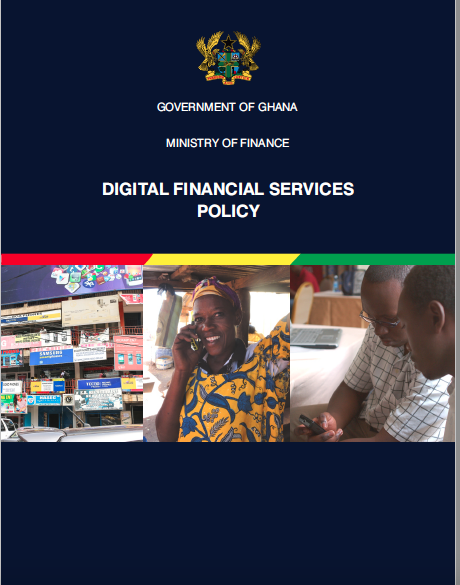
The rapid growth of affordable and increasingly available new digital technologies including mobile telephony, big data, emerging technologies such as artificial intelligence, robotics among other are creating the fertile ground for digital financial services (DFS) in Ghana strive. Also e-commerce companies, banks, microfinance, micro credits, loans and saving companies as well as Fintech companies are supporting the growth of this DFS with innovation and a variety of services.
To ensure the stimulation of the sector, the government of Ghana through ministry of finance, has develop Digital Financial Policy ( 2021-2023) “to build on these advances to create a resilient,inclusive and innovative DFS ecosystem that contributes to social development and a robust economy with a thriving private sector. The Government envisions that by 2023:
- All Ghanaians will have access to a broad range of suitable and affordable digital financial services – including payment, credit, savings, insurance, and investment.
- Businesses and Government will have achieved greater transparency and efficiency to contribute to the economic growth of the nation.
- Payment flows would be digitized and formalised, thereby shrinking the informal economy, increasing Government revenues, and making monetary policies more effective.
The policy is organised into 6 action areas namely:
- ACTION AREA 1: Governance
- ACTION AREA 2: Enabling regulation
- ACTION AREA 3: Capacity Building
- ACTION AREA 4: Market infrastructure
- ACTION AREA 5: Digital payment use cases
- ACTION AREA 6: Support FinTech
The policy concludes with a timeline of action and how the National Financial Inclusion and Development Strategy (NFIDS) 2018–2023 policy is related to DFS policy.
Source : https://www.mofep.gov.gh/sites/default/files/acts/Ghana_DFS_Policy.pdf
